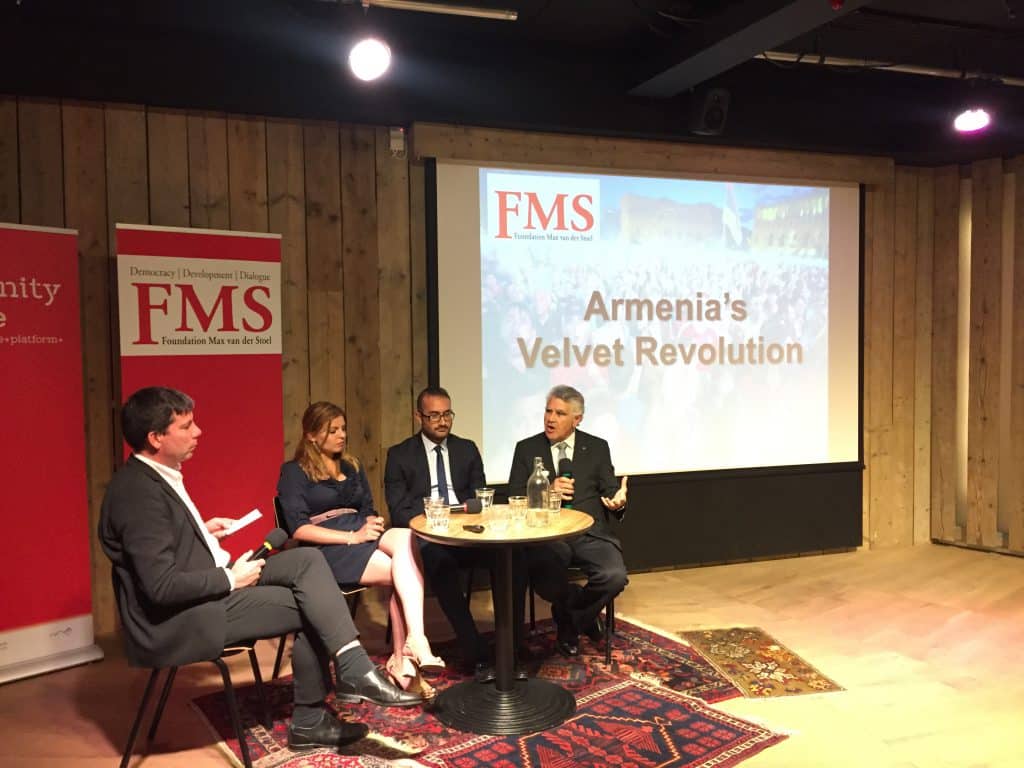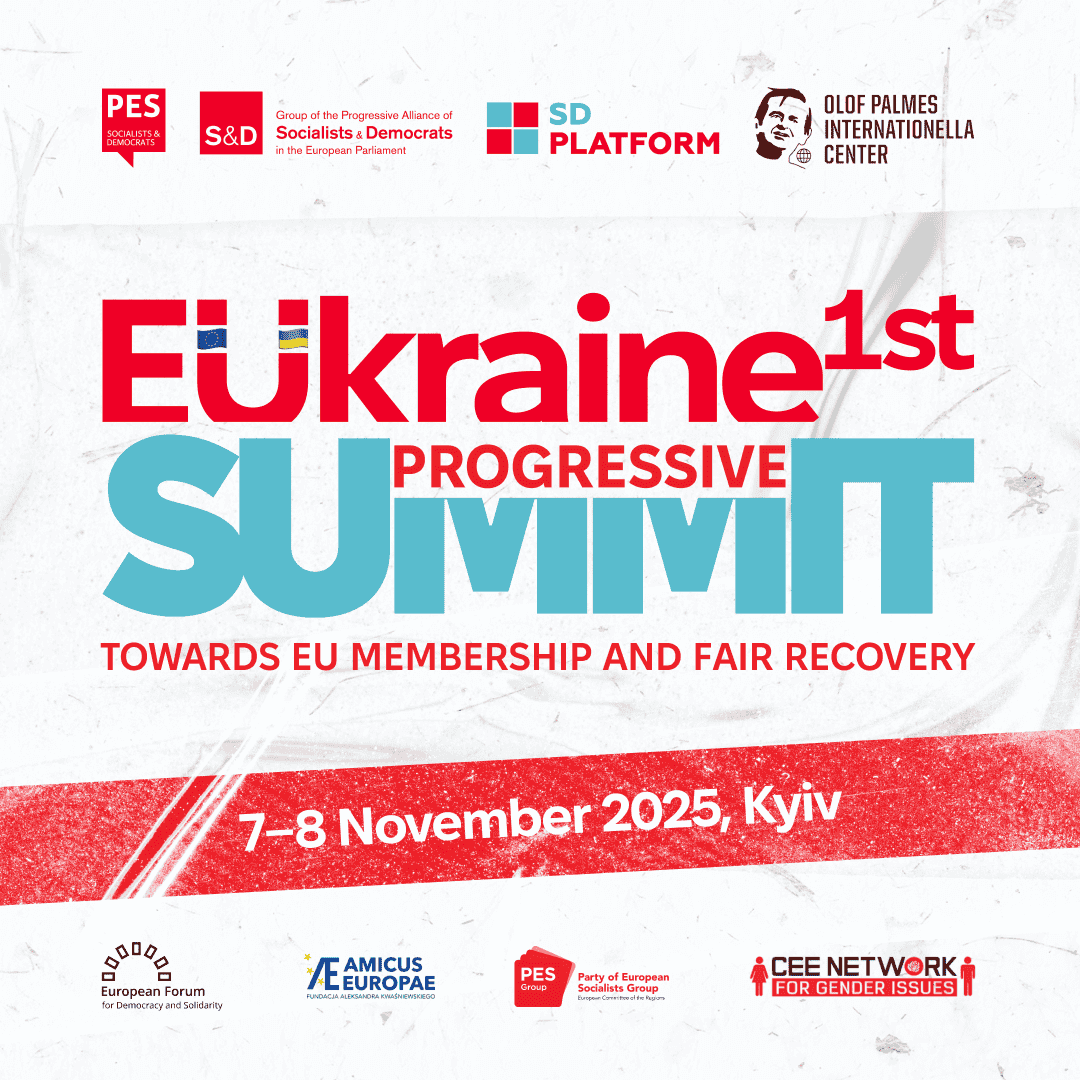In the Netherlands, the recent political upheaval in Armenia has largely stayed out of the news. High time, therefore, to dig a little deeper into recent events. And what better place for that that a Political Café? In a well-filled Humanity House, the FMS organised a very interesting evening full of strong analyses, gripping stories and musical highlights on 25 June. Under the watchful eye of moderator Arjen Berkvens, the audience learned more about the revolution.
Our own Armenia expert, Marina Ohanjanyan, kicked off the evening with a refresher course on the Armenian revolution. After all, what had happened again? Marina, who was present in Yerevan at the time of the revolution, took us back to April and May this year. Young activists in particular had been protesting for weeks against Serzh Sargsyan's decision to assume the renewed premiership - with more power - after years of presidency. Led by charismatic opposition leader Nikol Pashinyan, they called for a revolution of love and solidarity themselves. Successfully, as Sargsyan resigned on 23 April. Pashinyan became the new prime minister. According to Marina, the strength of the protests lay in their peacefulness and positive message of change. Besides, this was not a revolution, like innUkraine, with the aim of seeking rapprochement with a foreign power.
On the latter point, the second speaker, researcher at the Clingendael Institute Tony van der Togt, latched on. Tony substantiated that Armenia maintained an impossible balancing act, even before the revolution, between the European Union and the Russian-led Eurasian Economic Union. The new prime minister Pashinyan seems unwilling to change this. With this, Russia sees its interests in Armenia as out of danger - for now - and assumes it can still hold Armenia. How long this feeling will stay with the Kremlin, however, remains to be seen, but as long as that feeling is there, Russia will not intervene, according to Tony.
To let these strong analyses sink in, it was time for a bit of culture. Two qanun players introduced the Humanity House to traditional Armenian music pieces. After this musical highlight, it was time to engage in conversation with Armen Mkhchyan and Ozheni Avetisyan, two social democratic activists from Armenia involved in the demonstrations. Mato Hakhverdian, president of the Federation of Armenian Organisations in the Netherlands (FAON), also joined the panel. Arjen kicked off the discussion with some questions about the activists' experiences and a view from the diaspora, after which the audience was also allowed to ask questions.
Peaceful and inclusive
Thus, we learned a lot about the activists' perspective on their revolution. Both Armen and Ozheni emphasised mutual solidarity. Armen told an anecdote where a police officer was recognised at the protests. His grandmother was also in the group of protesters, to which an activist shouted, "Are you going to shoot your grandmother?". Popular solidarity, even among the police, was the key to success. Still, the success was unexpected for many people. "When they said Sargsyan had resigned I did not believe this at first," Ozheni added. She had witnessed for herself that even outside Yerevan, in the smaller provincial towns. the revolution was growing. Even outside Armenia, according to Mato, this connection was felt among the highly engaged Armenian diaspora. The Armenian ambassador to the Netherlands, Garegin Melkonyan, who was present, also stressed that he was proud that Armenians had brought change without even ringing a window.
Nevertheless, this very hopeful story could count on critical questions from the attentive audience. After all, why should this revolution succeed? After all, the old powers have been recovering before. But Armen kept stressing that this time was different. The people trust each other and their new government. This trust is the basis for the new transparent, honest and free Armenia.




